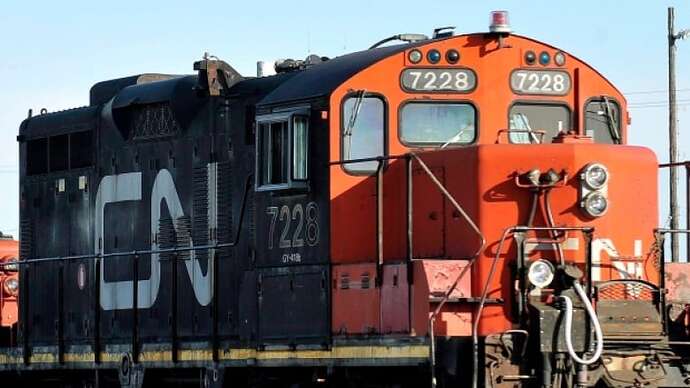By Michelle Bellefontaine
About 20 northern Alberta municipalities and industry associations are joining forces to lobby for better rail freight service for their region.
The Community Rail Advocacy Alliance plans to lobby the federal and provincial government and talk to CP and CN in hopes of improving what its members say is inconsistent access to rail cars in northern Alberta.
Members include the Alberta Forest Products Association, the Alberta Wheat and Barley Commissions, Grande Prairie, Edson, High Level, Slake Lake, Whitecourt, Peace River, Mackenzie County, Northern Sunrise County, County of Northern Lights and the Municipal District of Peace.
Industry associations are frustrated about rail access for their members. Municipal councils are concerned about the effects on their communities.
“One of our local industry partners had to reduce shifts and of course now you’re talking about people’s jobs,” Edson Mayor Kevin Zahara said.
“That’s not good for small communities such as Edson that rely on that industry to support our communities.”
The coalition wants Ottawa to make the rail companies publicly release data such as car fulfilment statistics and develop a strategy to maintain service levels during the winter.
The group plans to reach out to Alberta MPs, provincial MLAs, Alberta and federal cabinet ministers, key shareholders of the CN and CP and members of their boards, and bodies like the Transportation Safety Board of Canada over the next three months.
They hope the Alberta government can back them in their push with the federal government, which regulates the rail industry.
“Whether it’s disparities of railcars, whether it’s service lines, whether it’s winter service, there’s there’s lots of little pieces that we’re hearing that are impacting the economy significantly,” said Grande Prairie Mayor Jackie Clayton. The northwest Alberta city is co-ordinating the campaign.
Almost all the rail lines north of Edmonton are owned by CN.
Bus not a taxi
Sexsmith grain farmer Greg Sears chairs the Alberta Wheat Commission, which has joined the coalition. He said he has experienced inconsistent rail service throughout his two decades of farming.
“Sometimes it’s good service and timely car allocations and other times we’re sitting here waiting and waiting to get contracts shipped out because cars haven’t arrived,” Sears said.
Another issue is that the railways charge different rates depending on the commodity. The maximum revenue entitlement caps the rates CP and CN can earn from shipping grain in Western Canada. Sears says the railways may ship lumber and oil first, leaving grain shipments for last.
Sears said the Ag Transport Coalition, an organization funded by producers, keeps an eye on rail performance. He would like the federal government to take a more active role.
“We get a lot of mixed messages as farmers about what the causes are of outages or delays,” he said. “I think the lack of transparency makes it difficult to get any type of solutions in place.”
Barry Prentice, a professor in supply chain management and director of the Transport Institute at the University of Manitoba, said the rail car issues are caused by a number of factors.
Railways use fewer cars on trains in the winter because air brakes don’t work as well in frigid temperatures.
Prentice said other factors can help create capacity issues. For example, grain producers had a large crop this year that needs to be shipped so the railways may not focus their attention on shipping other commodities. Railways act more like buses, not taxis, he said.
“There are only so many cars, so many crews, so much power, and all those things have to be in proper proportions in order to move products,” Prentice said.
“In any given year, there’s probably going to be some cars that aren’t moved as much as others and there’s going to be some places that perhaps will get a little less service on the basis of what are the priorities.”
The Community Rail Advocacy Alliance is in the early stages of gathering information in hopes of making its case to Ottawa and the railways in the next few months.
Zahara said the goal is to work collaboratively on finding solutions.
“We just want to ensure that we have the best rail system that we can in our country in order to have economic prosperity right across Canada.”
